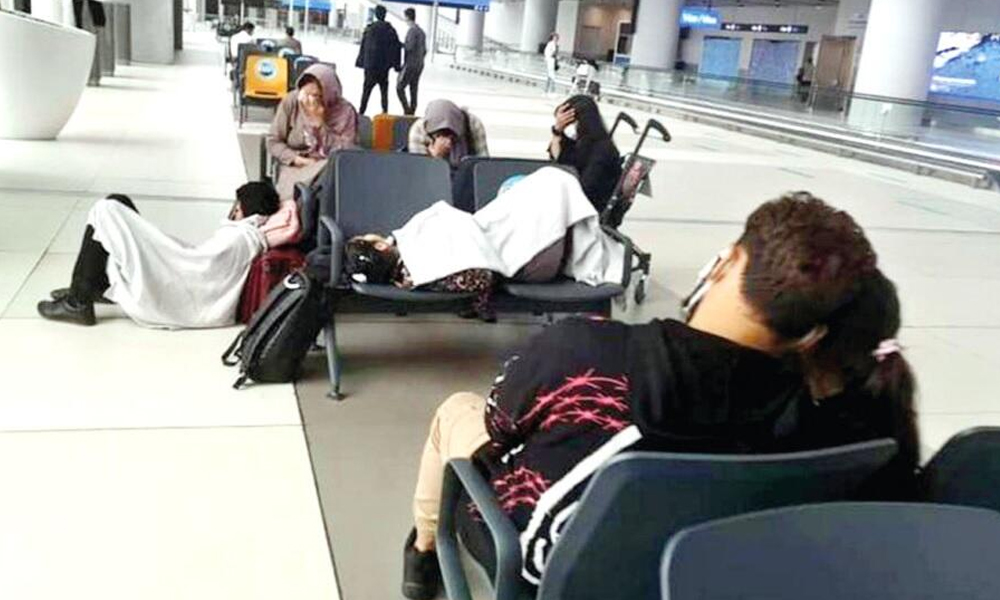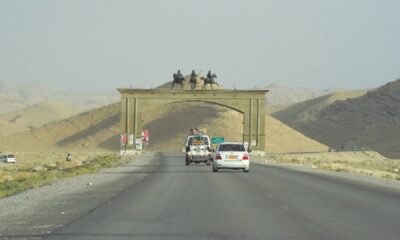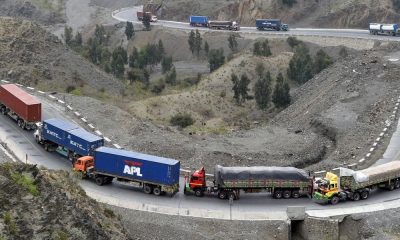Latest News
Afghan family stranded at Istanbul airport for three weeks

Sixteen members of an Afghan family have been stranded at Istanbul Airport for three weeks after fleeing the country, Turkey’s Hurriyet Daily News reported.
The family of 16, including adults, elderly people and babies, arrived in Turkey on June 22 but were left stuck at the airport because of visa irregularities.
Speaking to the BBC’s Turkish service, the family members said they arrived in Turkey without visas and their entrance was denied by authorities, but that they were now refusing to go back to Afghanistan because of concerns about political tensions and threats they received from the Taliban.
The family used to live in Herat city, according to a family member whose asked to be called only Ahmed for security reasons.
Ahmed said he worked for Blumont, a U.S.-based international aid organization in Afghanistan.
He said when one of their relatives was killed by the Taliban last month, the family decided to flee and first arrived in Kabul from Herat, and then to Istanbul but were refused entry into Turkey as they had no visas.
The family told Hurriyet they had filed an international protection application and prefer to live in the airport terminal for a “new life” in Istanbul.
“The Taliban know we have fled. If we go back, they will kill us all. In no way can we return to our country. There is no way around it. But Turkey is trying to send us back. We don’t want to die,” Ahmed told BBC Turkish.
No statement was made by the General Directorate of Migration Authority and the airport administration.
Hurriyet also reported that thousands of mostly young people fleeing from Afghanistan are crossing into Turkey via illegal routes every day due to the fear of the Taliban.
Latest News
More needs to be done to boost local industry, says Kabir

The deputy prime minister for policy, Mawlavi Abdul Kabir, met with Nooruddin Azizi, Acting Minister of Commerce and Industry, at Sapidar Palace on Tuesday and discussed issues around the quality of domestic products and the need to grow and develop the industrial sector.
Azizi said that good trade relations with neighboring countries has resulted in stable prices of goods in the country.
He said the Ministry of Commerce and Industry works closely with the private sector. As a result, the private sector functions in a befitting manner and the Islamic Emirate has provided necessary facilities.
Azizi said that based on the Islamic Emirate’s good economic policies, there has been a significant development in the import/export sector in the country.
Kabir in turn voiced appreciation for efforts by the leadership of the Ministry of Commerce and Industry and said: “The unprecedented efforts of the IEA’s administrations and the stability of the Afghan currency caused the price of food ingredients to remain in the right state and our people also be able to buy essential materials.”
He emphasized the need to work for a balance in trade with neighboring countries, and said more efforts were needed to improve the quality of domestic products and to grow the sector.
Latest News
Russia and Tajikistan hold joint military drills along Afghanistan border

Russia and Tajikistan conducted a joint four-day military exercise along the border with Afghanistan in order to be prepared for any “potential threats”, Tajik media reported this week.
Russian military personnel from the 201st military base in Tajikistan participated in this exercise. Reports stated military personnel practiced various combat tactics, especially tactics to counter terrorist groups that illegally enter Tajikistan.
This comes amid repeated concerns expressed by Afghanistan’s neighbors about what they claim are terrorist threats originating from Afghanistan.
The Islamic Emirate has not yet commented on the drills but has repeatedly denied the presence of terrorist groups in the country. The IEA has also continuously said no militant group will be allowed to threaten another country from Afghanistan.
Latest News
Media Violation Commission bans two TV channels

The Media Violations Commission has ordered Noor and Barya TV channels to stop broadcasting and to appear in court, state-run Bakhtar News Agency reported on Tuesday.
ّIt is said that the decision against the channels was taken for “not observing the principles of journalism.”
-

 Regional4 days ago
Regional4 days agoIndian foreign ministry advises against travel to Iran, Israel
-

 Latest News5 days ago
Latest News5 days agoLightning strikes in Helmand kill one, injure three
-

 Latest News4 days ago
Latest News4 days agoTop former US general claims Daesh-Khorasan is ‘on the upswing’
-

 Business4 days ago
Business4 days agoAfghanistan reaches self-sufficiency in production of 133 items: MoIC
-

 Sport3 days ago
Sport3 days agoACL draw to be broadcast live on ATN channels
-

 Health4 days ago
Health4 days agoMajority of Afghans with mental disorders are women: officials
-

 Regional3 days ago
Regional3 days agoIRGC chief warns of harsher response if Israel attacks Iran
-

 Regional4 days ago
Regional4 days agoGunmen kill 9 men after abduction in southwest Pakistan
























